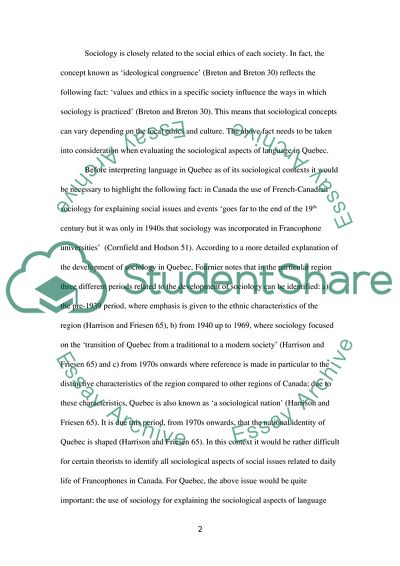Cite this document
(The Sociological Aspects of Language in Quebec Literature review Example | Topics and Well Written Essays - 2250 words - 1, n.d.)
The Sociological Aspects of Language in Quebec Literature review Example | Topics and Well Written Essays - 2250 words - 1. https://studentshare.org/sociology/1786921-canadian-society-newspaper-research-assignment
The Sociological Aspects of Language in Quebec Literature review Example | Topics and Well Written Essays - 2250 words - 1. https://studentshare.org/sociology/1786921-canadian-society-newspaper-research-assignment
(The Sociological Aspects of Language in Quebec Literature Review Example | Topics and Well Written Essays - 2250 Words - 1)
The Sociological Aspects of Language in Quebec Literature Review Example | Topics and Well Written Essays - 2250 Words - 1. https://studentshare.org/sociology/1786921-canadian-society-newspaper-research-assignment.
The Sociological Aspects of Language in Quebec Literature Review Example | Topics and Well Written Essays - 2250 Words - 1. https://studentshare.org/sociology/1786921-canadian-society-newspaper-research-assignment.
“The Sociological Aspects of Language in Quebec Literature Review Example | Topics and Well Written Essays - 2250 Words - 1”. https://studentshare.org/sociology/1786921-canadian-society-newspaper-research-assignment.


